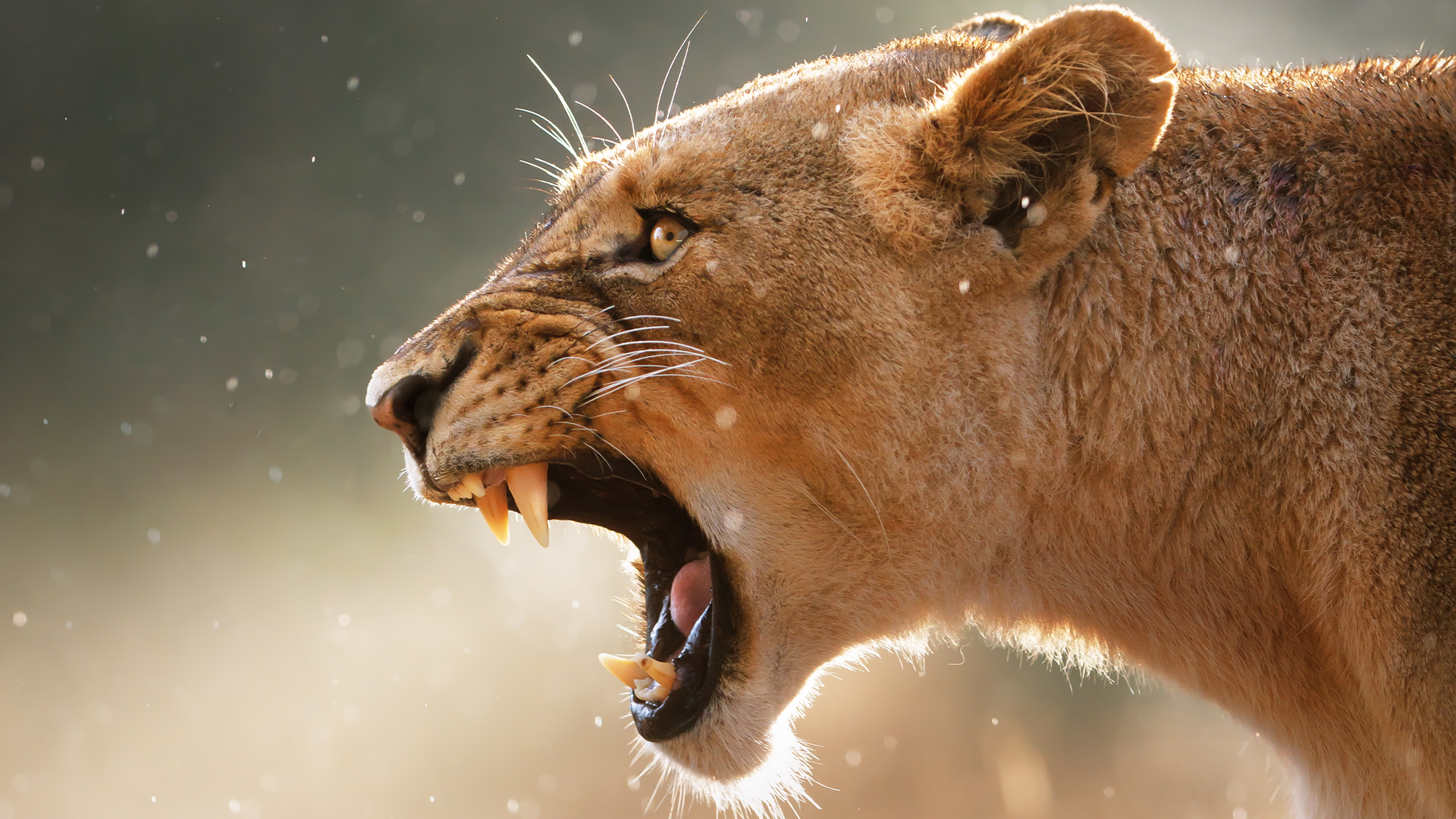

Lions are often incorrectly called the “king of the jungle,” and not just because most live in plains and grasslands or because lionesses do most of the hunting. These days, the giant cats are not feared as much as another “super predator”—the animals living in an ecological park in South Africa now fear humans more than lions, according to a study published October 5 in the journal Current Biology. Roughly 95 percent of the mammals living among lions are more afraid of human voices than the big cats or hunting sounds.
[Related: The rare case of a lioness with a mane.]
The study focused on Greater Kruger National Park in South Africa. It’s a protected area of about 1,328 square miles and is home to one of the world’s largest remaining roaming lion populations. African lions have been considered endangered since 2015, but lions are still among the biggest group-hunting land predators on Earth. However, humans are battling their supremacy, as multiple studies have shown that humans kill prey at higher rates than lions do. This new research compares the fear animals have of humans versus lions to see which species causes more fear.
In the study, a team of biologists observed how 19 mammal species reacted to a series of recordings. The sounds included human voices, lion vocalizations to signal the presence of a top non-human predator, and barking dogs and gunshots associated with hunting. The clips of human voices were played at a more conversational volume, came from radio or TV recordings, and included four of the most commonly used languages in the region (Tsonga, Northern Sotho, English, and Afrikaans).
“The key thing is that the lion vocalizations are of them snarling and growling, in ‘conversation’ as it were, not roaring at each other,” Western University conservation biologist Michael Clinchy said in a statement. “That way the lion vocalizations are directly comparable to those of the humans speaking conversationally.”
The team used a waterproof camera system that had enough battery life to record day and night over the course of several months and captured 15,000 videos. The observations were also taken during the dry season and the team put the systems at waterholes to get recordings of all the animals coming by to drink.

“One night, the lion recording made this elephant so angry that it charged and just smashed the whole thing,” study co- author and Western University conservation biologist Liana Y. Zanette said in a statement.
When the animals heard human sounds, they were twice as likely to run and ditch the waterhole than they were when lions or hunting noises were played. About 95 percent of species, including giraffes, leopards, hyenas, warthog, impala, elephants, and rhinoceroses, ran more often or abandoned waterholes more quickly in response to human sounds than lions.
“There’s this idea that the animals are going to habituate to humans if they’re not hunted. But we’ve shown that this isn’t the case,” said Clinchy. “The fear of humans is ingrained and pervasive, so this is something that we need to start thinking about seriously for conservation purposes.”
[Related: How a 19-year-old lion fathered 35 cubs in 18 months.]
The team is now looking into whether their sound systems could be used to steer endangered species like the Southern white rhino away from poaching areas in South Africa. Efforts to keep rhinos away from certain areas through the use of human voices have seen success in some early studies.
“I think the pervasiveness of the fear throughout the savannah mammal community is a real testament to the environmental impact that humans have,” says Zanette. “Not just through habitat loss and climate change and species extinction, which is all important stuff. But just having us out there on that landscape is enough of a danger signal that they respond really strongly. They are scared to death of humans, way more than any other predator.”
